Mozart Le Nozze di Figaro Creative
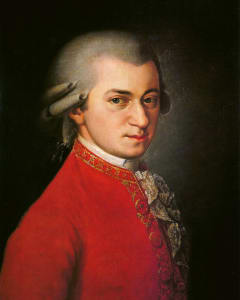
Composer
Wolfgang Amadeus MozartWolfgang Amadeus Mozart (27 January 1756 – 5 December 1791), baptised as Joannes Chrysostomus Wolfgangus Theophilus Mozart, was a prolific and influential composer of the Classical period. Despite his short life, his rapid pace of composition resulted in more than 800 works of virtually every genre of his time. Many of these compositions are acknowledged as pinnacles of the symphonic, concertante, chamber, operatic, and choral repertoire. He is among the greatest composers in Western history, with music admired for its "melodic beauty, its formal elegance and its richness of harmony and texture".
Born in Salzburg Austria, in the Holy Roman Empire, Mozart showed prodigious ability from his earliest childhood. Already competent on keyboard and violin, he composed from the age of five and performed before European royalty. His father took him on a grand tour of Europe and then three trips to Italy. At 17, he was a musician at the Salzburg court but grew restless and traveled in search of a better position.
While visiting Vienna in 1781, Mozart was dismissed from his Salzburg position. He stayed in Vienna, where he achieved fame but little financial security. During his final years there, he composed many of his best-known symphonies, concertos, and operas. His Requiem was largely unfinished by the time of his death at the age of 35, the circumstances of which are largely uncertain and much mythologized.
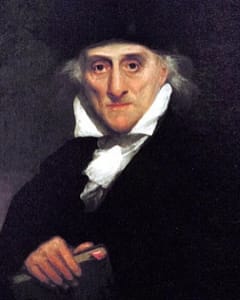
Librettist
Lorenzo Da PonteLorenzo Da Ponte (born Emanuele Conegliano; 10 March 1749 – 17 August 1838[4]) was an Italian, later American, opera librettist, poet and Roman Catholic priest. He wrote the libretti for 28 operas by 11 composers, including three of Mozart's most celebrated operas: The Marriage of Figaro (1786), Don Giovanni (1787), and Così fan tutte (1790).
Lorenzo Da Ponte was born Emanuele Conegliano in 1749 in Ceneda in the Republic of Venice (now Vittorio Veneto, Italy). He was Jewish by birth, the eldest of three sons. In 1764, his father, Geronimo Conegliano, then a widower, converted himself and his family to Roman Catholicism in order to marry a Catholic woman. Emanuele, as was the custom, took the name of Lorenzo Da Ponte from the bishop of Ceneda who baptized him.
Da Ponte died in 1838 in New York; an enormous funeral ceremony was held in New York's old St. Patrick's Cathedral on Mulberry Street. Some sources state that Da Ponte is buried in Calvary Cemetery, Queens.
The nature of Da Ponte's contribution to the art of libretto-writing has been much discussed. In The New Grove Dictionary of Music and Musicians, it is pointed out that "the portrayal of grand passions was not his strength", but that he worked particularly closely with his composers to bring out their strengths, especially where it was a matter of sharp characterization or humorous or satirical passages. Richard Taruskin notes that Mozart, in letters to his father Leopold, had expressed concern to secure Da Ponte, but was worried that the Italian composers in town (e.g. Salieri) were trying to keep him for themselves. He specifically wished to create a buffa comedy opera which included a seria female part for contrast; Taruskin suggests that "Da Ponte's special gift was that of forging this virtual smorgasbord of idioms into a vivid dramatic shape.
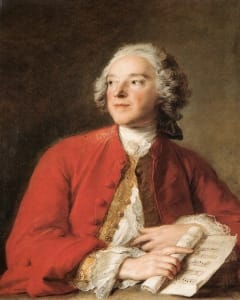
Dramatist
Pierre BeaumarchaisPierre-Augustin Caron de Beaumarchais (French: [pjɛʁ bomaʁʃɛ]; 24 January 1732 – 18 May 1799) was a French polymath. At various times in his life, he was a watchmaker, inventor, playwright, musician, diplomat, spy, publisher, horticulturist, arms dealer, satirist, financier, and revolutionary (both French and American). Born a Parisian watchmaker's son, Beaumarchais rose in French society and became influential in the court of Louis XV as an inventor and music teacher. He made a number of important business and social contacts, played various roles as a diplomat and spy, and had earned a considerable fortune before a series of costly court battles jeopardized his reputation. An early French supporter of American independence, Beaumarchais lobbied the French government on behalf of the American rebels during the American War of Independence. Beaumarchais oversaw covert aid from the French and Spanish governments to supply arms and financial assistance to the rebels in the years before France's formal entry into the war in 1778. He later struggled to recover money he had personally invested in the scheme. Beaumarchais was also a participant in the early stages of the 1789 French Revolution.
Beaumarchais is probably best known for his theatrical works, especially the three Figaro plays
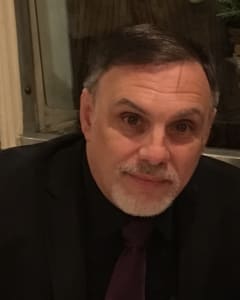
Conductor
Stephen ScovassoStephen Scovasso is a musicologist, conductor, director and author. He has directed operas including, Carmen, Tosca, La Bohème, Don Giovanni, Gianni Schicchi, Cosi fan Tutte as well operetta's such as The Merry Widow and Die Fledermaus. He has also directed American Musical Theater pieces such as Sondheim’s Sweeney Todd, Into the Woods and Bernstein’s Candide. In the dramatic theater, Stephen has directed Garcia Lorca’s La Casa del Bernarda Alba, Oscar Wilde’s Salome.
In conjunction with SAS Performing Arts Company, he has produced and directed 6 full length virtual streams including Dracula: The Radio Play, Dickens's A Christmas Carol. Oscar Wilde's The Importance of Being Earnest and Lewis Carroll's Alice in Wonderland and Shakespeare’s A Midsummer Night's Dream as well as many virtual concerts and holiday concerts.
Stephen studied Operatic and Symphonic conducting under the tutelage of the late Vincent La Selva. Among the works he has conducted are Beethoven’s Symphony no. 9 in D minor, Handel’s Messiah, Puccini’s Tosca, and Mozart's Don Giovanni.
During his years at Arizona State University, he taught classes on the Baroque Style, Opera, American Musical Theater, and Stephen Sondheim.
Mr. Scovasso has also published a treatise on Puccini's Il Trittico and the end of Italian Opera
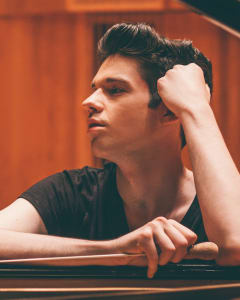
Musical Preparation
Jon Audric NelsonJon Audirc Nelson is a music director and pianist for musical theatre and opera. Recent career highlights include Music Supervisor for a production of Noel Coward’s Private Lives (which incorporated 1930’s arrangements of contemporary pop tunes), the 11th annual Colorado Theatre Guild HENRY Awards, Leonard Bernstein’s MASS at the Kupferberg Center, and a production of Rigoletto at Lincoln Center. Also a passionate voice coach, Jon dedicates a large portion of his schedule to working with singers of both musical theatre and opera. His clients can be found on Broadway, national tours, and at major regional theaters, in addition to the operatic stages of New York, San Francisco, Santa Fe, Berlin, London, Paris, and Bangkok, to name a few. However, his greatest devotion belongs to his precious French bulldog, appropriately named La Divina.
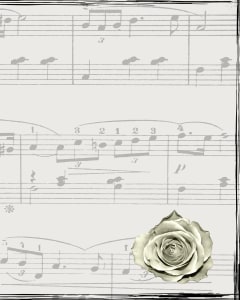
Collaborative Pianist
Catherine MillerCatherine Miller enjoys an active career in New York as accompanist for voice
recitals, master classes and auditions. She has worked at the Mannes College of
Music in the College, Extension and Preparatory divisions, playing for lessons,
juries, recitals, opera workshops and song literature classes. Venues for NYC
performances, in collaboration with singers and instrumentalists, have included Carnegie and Weill Recital Hall, the Performing Arts Library at Lincoln Center and Saint Peter’s Church.
Catherine has participated in several productions with Regina Opera Company and
with Amore Opera, and she is Associate Music Director for the little OPERA Theatre of NY (LOTNY).
She is on the professional roster of Concerts in Motion, a New York City based not-for-profit organization reaching isolated New York City residents in private home and group concert settings. She has also been rehearsal pianist for Greenwich Village Chamber Singers since 2008.
A native of Kansas City, where she received her undergraduate training at the
Conservatory of Music/UMKC, Catherine was privileged to coach with pianist Elizabeth Rich in New York.
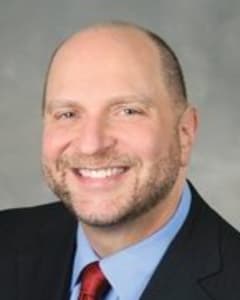
Italian Coach
Paul FerraraPaul Ferrara is delighted to volunteer as Italian language coach for SAS Performing Arts Concert of Mozart’s Le nozze di Figaro. Paul earned his Ph.D. in Italian from the University of California, Berkeley. He lived two years in Florence, Italy, where he sang with the Coro del Quartiere 14. He also performed with the Madison Opera Chorus (Cavalleria rusticana/Pagliacci) and served as its Italian Language Coach (Madama Butterfly). In addition, he has served as Italian Language Coach for numerous productions with Amore Opera (Un ballo in maschera, Il barbiere di Siviglia, La bohème, Tosca, La traviata, La zingara). Paul holds J.D. and LL.M. (Taxation) degrees from NYU School of Law. He is a Managing Director/Wealth Strategies Advisor at Bank of America Private Bank.
See above